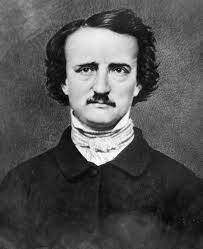 Philosophy is the search for unbiased truth. The word means ‘lover of wisdom’, or we could say ‘lover of truth’. But does the truth matter? In my opinion, the truth matters above all else, but sadly our society appears to prefer a pleasant lie to a reality they don’t like.
Philosophy is the search for unbiased truth. The word means ‘lover of wisdom’, or we could say ‘lover of truth’. But does the truth matter? In my opinion, the truth matters above all else, but sadly our society appears to prefer a pleasant lie to a reality they don’t like.
As a writer, you can bring attention to an issue that society has swept under the rug, but you need to do it subtly. No one likes being lectured to. Have you ever put down a book when the author made an overt comment on a social problem? I have and so will your readers.
Philosophers who write are a treasure-trove of ideas for storylines. They often warned us of our bad decisions, but did we listen? History is a harsh judge. Perhaps that’s why we so often bury it.
Why are Philosophy and Philosophers Important to a Writer?
A writer’s blog may seem like a strange place to see an argument for philosophy, but many great novels were written by philosophers as the means of communicating their message. Philosophers dive deeply into the human condition and often use literature to convey the message. As a writer, studying the findings of those who have often spent a lifetime attempting to discover truth and wisdom is well worth the effort as you expand your mind to possibilities in your writing.
What Makes Someone a Philosopher?
I’ve met more than a few holders of doctorates in philosophy. They are best described as having studied philosophers and perhaps learned something along the way; in some cases, perhaps not. I’m still waiting to meet a true living philosopher. I only know the good ones through their writings, and that’s the purpose of this post.
I’ll discuss a few of my favorites in a series of posts that I believe have contributed greatly to addressing the problems of the human condition. I’ve listed a few here you could reference in your quest for writing ideas.
- The Buddha, “Live, suffer, die.”
- Fredrick Nietzsche claimed that God was dead.
- Arthur Schopenhauer’s Philosophy of the Will.
- Emanuel Kant’s views on ethics.
- David Hume’s argument for experience as the sole basis of all knowledge.
- Soren Kierkegaard, the ultimate Christian apologist.
- Baruch Spinoza, the great rationalist.
- Jean-Paul Sartre on existentialism.
- Voltaire (François-Marie Arouet) on freedom of speech and religion
- Albert Camus on absurdism, existentialism, and nihilism.
- Dante’s Inferno.
- Edgar Allan Poe, the inventor of the detective fiction genre.
- Rene Descartes on knowledge.
- Bertrand Russell, the social critic.
These are only a handful of philosophers who have graced us with their wisdom. Whether you agree or disagree with their positions, the one thing you can say is they all sought the truth. They also wrote it down. I’ll do my best to do some justice in my presentation of their positions, but in the face of such greatness, I know I will fall short.
Rene Descartes (1596–1650)
 Descartes is often described as the father of modern philosophy and most famous for his quote, “I think; therefore, I am.”
Descartes is often described as the father of modern philosophy and most famous for his quote, “I think; therefore, I am.”
Descartes decided to challenge his beliefs about the world by asking the question, “What could he actually know for certain?”
He knew he existed because he could doubt this existence. If he didn’t, then who was doing the doubting? Beyond that, he had no basis for declaring any other truth. He couldn’t demonstrate that anyone or anything other than himself existed because he couldn’t prove his senses weren’t deceiving him.
Accomplishments
Descartes laid the groundwork for analytic geometry and calculus as a mathematician, and the Cartesian coordinate system is named after him. He proposed an underlying nature to all matter and published a dozen books in French and Latin, mostly in mathematic and physics. He also experimented with barometric pressure to forecast the weather. He was a scientist and a philosopher, but lucky for us, he was a thinker and a writer.
The Writer’s Takeaway
Other philosophers disagreed with Descartes’ standard for knowing, but what about our senses? If I put sugar on my tongue, what happens? My taste buds send an electrical impulse to my brain, which is wired to tell me that sugar tastes sweet. What if I stick one finger in sugar and the other in salt. Assuming the same texture, could I tell the difference? Can I know what sugar or salt tastes like to someone else?
Try to describe the taste of an orange. Is there a definition that can be agreed upon other than an orange tastes like an orange? The only thing we can say for sure is each one of us has an idea of what an orange tastes like relative to oranges we’ve tasted. Was Descartes right? Is the world entirely subjective? Can we truly know anything about the world?
How could you use Descartes’ philosophy in your writing? Could two characters have different opinions about the same set of facts? What about a homicide detective who sees a suicide, but your protagonist believes it was murder. The detective, more prone to analyze the facts, like Descartes, would say that your protagonist sees what they want to see based on emotion. But, perhaps there is a coverup by the authorities, and your protagonist is determined to find the evidence to prove it? That could be the basis for a great murder mystery.
Edgar Allan Poe (1809–1849)
 Poe died at age 40, but during his abrupt life, he produced dozens of short stories and poems. Many give him the honor of inventing the detective genre and assisting in the creation of science fiction.
Poe died at age 40, but during his abrupt life, he produced dozens of short stories and poems. Many give him the honor of inventing the detective genre and assisting in the creation of science fiction.
He was the poster child of the starving artist. During his time, no one made a living as a writer. Poe could do nothing else while trapped in a world lacking adequate copyright protection, plus he had a serious drinking problem. Not a formula for success even today.
Accomplishments
Poe wrote short stories and poems for a dozen periodicals, as an editor and critic, while he changed jobs quite often. His first major success, the poem, The Raven, published in 1845, made him a household name. He had plans to start his own publication but died before he could launch the project. Some say he died from alcoholism, and there are rumors that he went mad because his wife passed away a few years earlier. Poe’s main contribution to literature was his critique of it. He once quoted, “Believe half of what you see and nothing you hear.” After his death, Poe was harshly slandered by those he criticized.
The Writer’s Takeaway
How could you use Poe’s philosophy in your writing? Poe used satire and humor to attack cultural norms and believed the meaning needed to be just under the surface, and works with obvious meaning ceased to be art. Are you making your message too obvious? A subtle nudge is more effective than a shove. Don’t preach to the reader, or you will turn them off. Don’t treat them like they’re stupid and won’t get the subtext so you have to explain it to them.
As a writing critic, he was brutal. Critically evaluating the writing of others makes you a better writer. I interviewed an editor once who sent me a sample of their work. I edited it and sent it back. It was terrible writing to begin with, and I pointed out just how bad. You should be able to recognize bad writing when you see it, so you can avoid it yourself.
Albert Camus (1913 to 1960)

Albert Camus was a renowned French philosopher and author.
He tackled questions concerning the search for meaning in a universe apparently devoid of meaning. Quite a deep subject, but to put it simply: Life is what you make it.
He died in a car accident at the age of 44. Imagine how many more novels he could have produced if he had lived a normal lifespan. The lesson for you is to get busy writing because you don’t know how long you have.
Accomplishments
Camus won the Nobel Prize in Literature in 1957 for his overall contribution. He produced three major novels: The Stranger (1942), The Plague (1947), and The Fall (1956), all worth the read. He was editor-in-chief of the French resistance newspaper Combat during World War II, making him a celebrity after the war. His contribution to philosophy was absurdism, where he argued for meaning and the value of human life as a counter to nihilism, no matter how absurd.
The Writer’s Takeaway
In his novel, The Stranger, Camus’s protagonist Meursault gets into trouble because he doesn’t play the game. Camus is making a commentary on the pressure of social conformity and the penalties for not following it. Conform or be cast out. The character is disliked and convicted of the murder despite the evidence of self-defense. Have you seen something like that recently?
Another philosophical novel by Camus is The Fall, and his last complete work of fiction presents an argument about ethics in the French legal system in contrast to the fall of man, in general. How could you use that theme in your writing? Could you have your main character struggle with an ethical dilemma? I’ve used the greater good argument in my book Hospital to portray the treatment of the chronically sick and elderly.
Conclusion
In fiction, there are familiar and fundamental plots:
- The hero who is called to an adventure.
- The hero who is faced with an overwhelming obstacle(s).
- The rags to riches scenario via a perilous journey.
- An epic quest lead by a hero.
- A rebirth or the prodigal son.
- A wrong the hero must make right or avenge.
- A comedy.
Your novel will fit into one of these themes. You would think readers would become bored with the same plots, but you have to understand the human mind likes the familiar. ‘The same, but different’ is always the best play. Flavoring it your way is the essence of good writing.